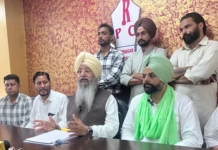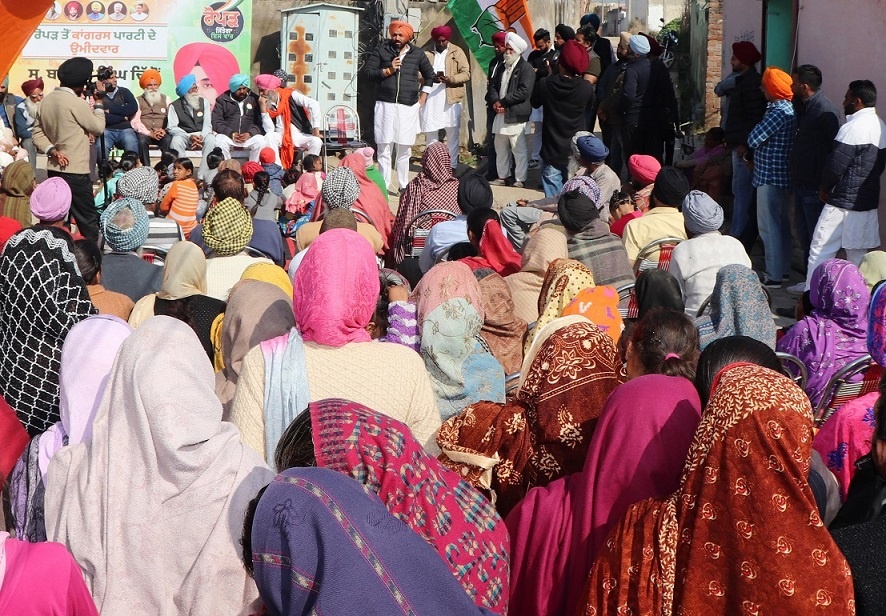Punjab gets Rs 2,108.16 cr from central government as tax devolution installments
Kanwar Inder singh/ royalpatiala.in
The Union Government has released two installments of tax devolution to State Governments amounting to Rs. 1,16,665.75 crore on 10th August, 2022, as against normal monthly devolution of Rs..58,332.86 crore.
This is in line with the commitment of Government of India to strengthen the hands of States to accelerate their capital and developmental expenditure.
State-wise breakup of amounts released is given below in the table:
State-wise distribution of Net Proceeds of Union Taxes and Duties for August 2022
| Sl. No | Name of State | Total (Rs. Crore) |
| 1 | Andhra Pradesh | 4,721.44 |
| 2 | Arunachal Pradesh | 2,049.82 |
| 3 | Assam | 3,649.30 |
| 4 | Bihar | 11,734.22 |
| 5 | Chhattisgarh | 3,974.82 |
| 6 | Goa | 450.32 |
| 7 | Gujarat | 4,057.64 |
| 8 | Haryana | 1,275.14 |
| 9 | Himachal Pradesh | 968.32 |
| 10 | Jharkhand | 3,858.12 |
| 11 | Karnataka | 4,254.82 |
| 12 | Kerala | 2,245.84 |
| 13 | Madhya Pradesh | 9,158.24 |
| 14 | Maharashtra | 7,369.76 |
| 15 | Manipur | 835.34 |
| 16 | Meghalaya | 894.84 |
| 17 | Mizoram | 583.34 |
| 18 | Nagaland | 663.82 |
| 19 | Odisha | 5,282.62 |
| 20 | Punjab | 2,108.16 |
| 21 | Rajasthan | 7,030.28 |
| 22 | Sikkim | 452.68 |
| 23 | Tamil Nadu | 4,758.78 |
| 24 | Telangana | 2,452.32 |
| 25 | Tripura | 826 |
| 26 | Uttar Pradesh | 20,928.62 |
| 27 | Uttarakhand | 1,304.36 |
| 28 | West Bengal | 8,776.76 |
| Total | 1,16,665.72 |

DEVOLUTION TAX
The devolution of resources to states is not discretionary to the Union government. It is based on a formulaic transfer of resources to states, determined by the Finance Commission. The tax devolution formula is based on the principles of need, equity, and efficiency. In other words, the formula is progressive – states in need of higher assistance receive a larger share of funds devolved.
This devolution formula is based on certain indicators. The Finance Commission, after several rounds of deliberations with states, ministries, local bodies, and the civil society, selects the parameters that are most representative of state needs . They also assign appropriate weights to each of these parameters, keeping the core principles of devolution intact.
August 10,2022










